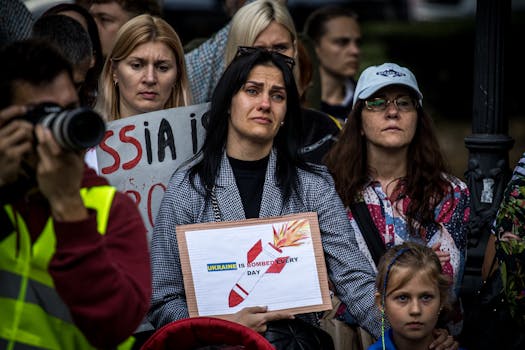
**
Qatar Airways CEO Akbar Al Baker Reveals Impact of Global Crisis, Outlines Resilient Recovery Strategy
The aviation industry faced unprecedented challenges in recent years, navigating the turbulent waters of the COVID-19 pandemic, geopolitical instability, and fluctuating fuel prices. Qatar Airways, a global leader in air travel, was not immune. However, CEO Akbar Al Baker recently detailed the impact of these crises on the airline and outlined the strategic measures implemented to ensure a robust recovery and continued growth. His insights offer valuable lessons for the industry and highlight Qatar Airways' resilience in the face of adversity.
Navigating the COVID-19 Pandemic: A Turning Point
The COVID-19 pandemic dealt a devastating blow to the global aviation sector. International travel restrictions, plummeting demand, and widespread lockdowns brought many airlines to their knees. Qatar Airways, while significantly impacted, demonstrated remarkable adaptability. Al Baker emphasized the importance of swift decision-making and strategic resource allocation during this period.
Key strategies employed during the pandemic included:
Cargo operations expansion: While passenger numbers dwindled, Qatar Airways significantly ramped up its cargo operations, leveraging its extensive network to transport essential goods and medical supplies globally. This proved crucial in maintaining revenue streams and ensuring operational continuity. This strategic pivot showcased the airline's flexibility and proactive response to changing market demands.
Cost-cutting measures: The airline implemented rigorous cost-cutting measures without compromising safety or service quality. This included negotiating favorable deals with suppliers, optimizing flight schedules, and streamlining internal processes. Such stringent cost management was vital to weathering the financial storm.
Government support and strategic partnerships: While Qatar Airways demonstrated financial strength, Al Baker acknowledged the crucial support received from the Qatari government. Strategic partnerships with other airlines also played a vital role in maintaining connectivity and supporting passenger flow during travel restrictions. This underlines the importance of government backing and industry collaboration in overcoming major crises.
Geopolitical Instability and Fuel Price Volatility: Added Challenges
Beyond the pandemic, the global aviation industry has grappled with geopolitical instability and volatile fuel prices. The ongoing conflict in Ukraine, for instance, significantly disrupted air routes and increased operational complexities. These factors, combined with persistently high fuel costs, added further pressure on airline profitability.
Qatar Airways' response to these challenges included:
Route optimization and network adjustments: The airline strategically adjusted its flight network to minimize disruptions caused by geopolitical events. This involved rerouting flights to avoid conflict zones and adapting to changing demand patterns. Such flexibility in route planning is crucial for sustained operations in unpredictable environments.
Fuel hedging strategies: Qatar Airways actively employed fuel hedging strategies to mitigate the impact of fluctuating fuel prices. This proactive approach protected the airline from significant price shocks and helped to stabilize operational costs.
Investing in sustainable aviation fuels (SAFs): Recognizing the importance of environmental sustainability, Qatar Airways is actively investing in SAFs to reduce its carbon footprint and ensure long-term operational resilience. This commitment to sustainable practices positions the airline as a leader in responsible air travel.
The Road to Recovery: A Focus on Growth and Sustainability
Despite the significant challenges faced, Qatar Airways has demonstrated a remarkable recovery. Al Baker highlighted the airline's strategic focus on growth and sustainability as key drivers of this resurgence.
Key elements of Qatar Airways' recovery strategy include:
Fleet modernization: Investing in modern, fuel-efficient aircraft is crucial for enhancing operational efficiency and reducing environmental impact. Qatar Airways' ongoing fleet modernization program is a testament to its commitment to long-term sustainability.
Expansion of network connectivity: The airline continues to expand its global network, connecting more cities and offering passengers greater choice and convenience. This underscores Qatar Airways' ambitions to remain a leading global airline.
Enhanced passenger experience: Investing in improved passenger services and amenities is paramount to attracting and retaining customers. Qatar Airways continues to focus on enhancing the overall passenger experience, solidifying its reputation for excellence.
Technological advancements: Embracing technological advancements, such as AI and big data analytics, is critical to optimizing operations, enhancing customer service, and making informed strategic decisions.
Conclusion: Resilience, Adaptability, and Vision
Akbar Al Baker's insights provide a valuable perspective on the resilience and adaptability required to navigate the crises impacting the aviation industry. Qatar Airways' success in weathering these storms can be attributed to its proactive strategies, strategic partnerships, and commitment to sustainable growth. The airline's ongoing investment in fleet modernization, network expansion, and enhanced passenger experience positions it for continued success in the years to come. The airline's experience serves as a powerful case study for other airlines facing similar challenges, highlighting the importance of decisive leadership, strategic planning, and a commitment to both financial stability and sustainable practices in an increasingly volatile global environment. The future of air travel remains dynamic, but Qatar Airways, under Al Baker’s leadership, appears well-positioned to navigate future uncertainties.


















